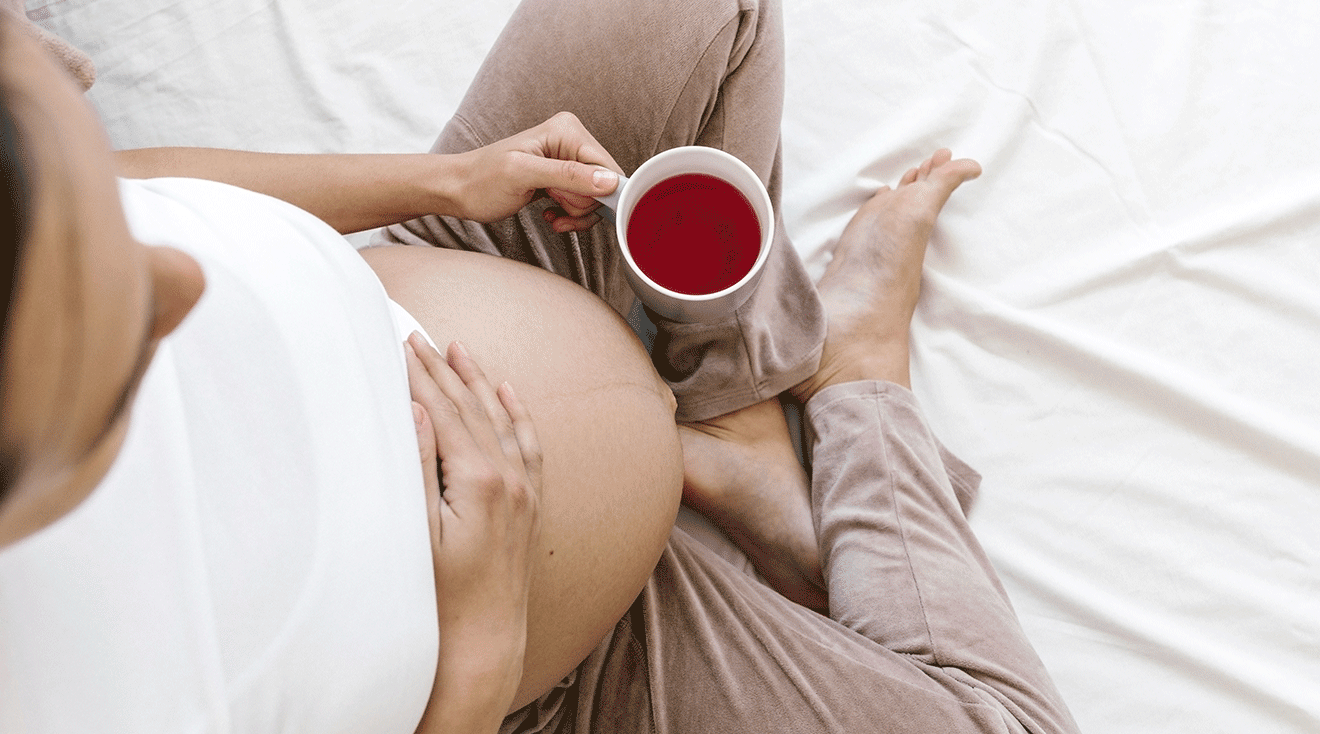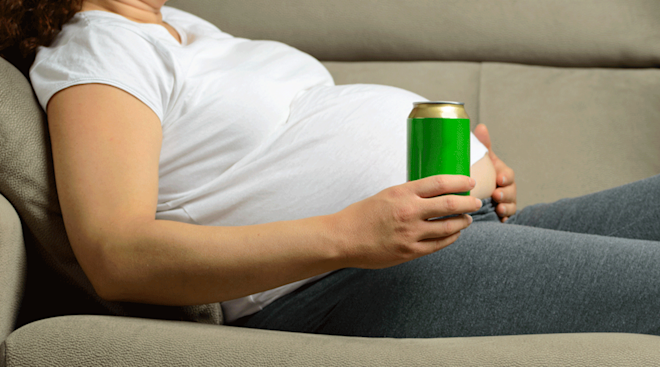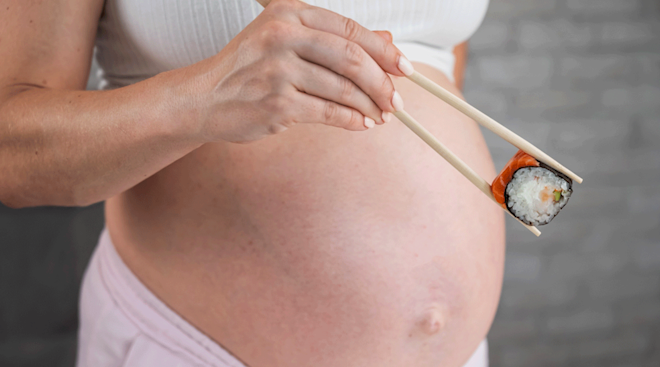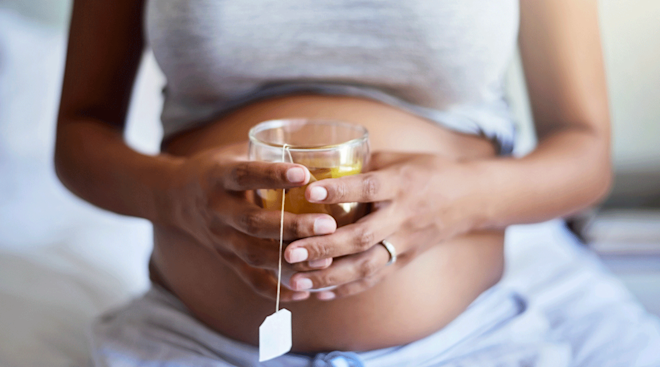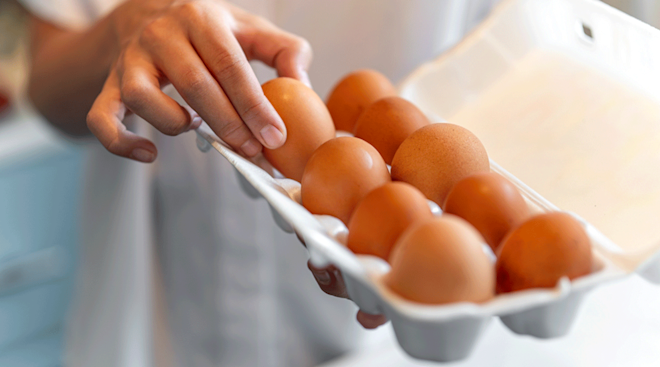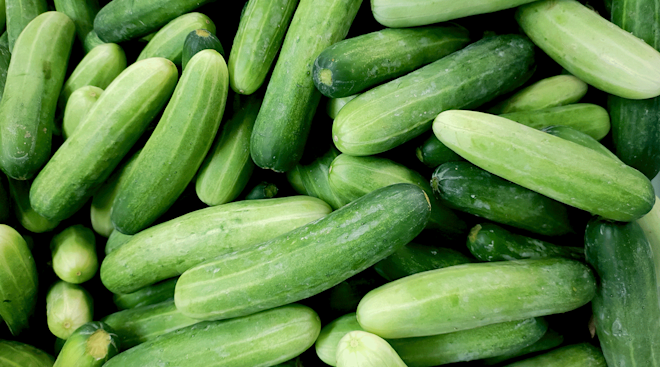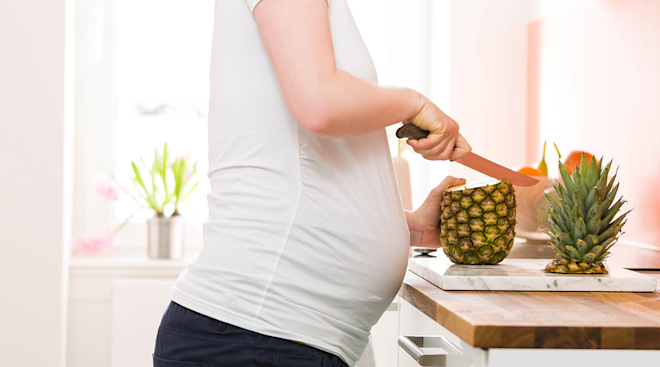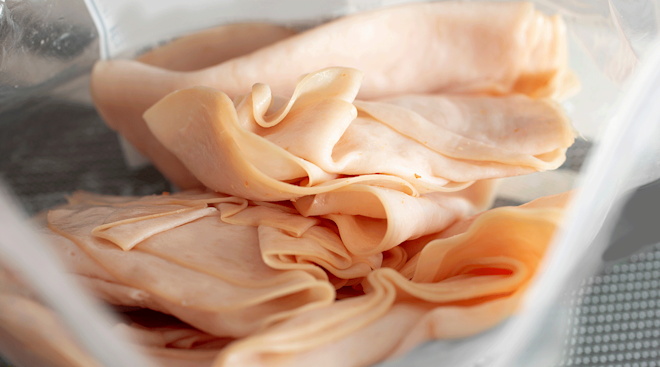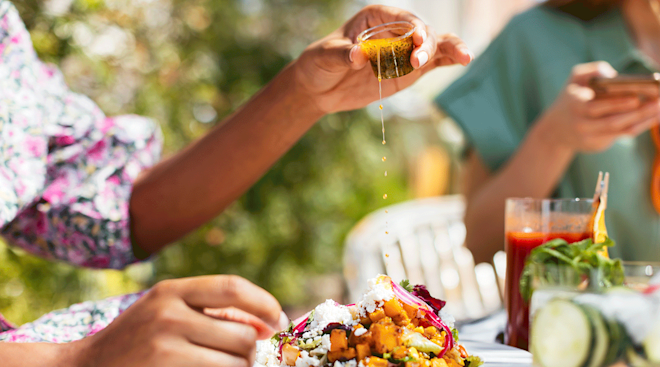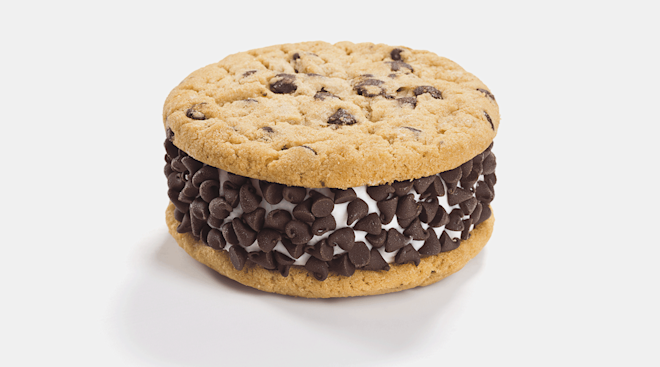Can Red Raspberry Leaf Tea Help You Through Pregnancy and Labor?
Many pregnant people love drinking red raspberry leaf tea for all of its purported benefits: Not only is it tasty, but it’s said to help your body prepare for labor, strengthening the uterine muscles, and (hopefully!) leading to a quicker, easier delivery. But although midwives have recommended drinking red raspberry leaf tea during pregnancy since, well, forever, the scientific evidence on its supposedly magical properties is still pretty minimal. And some providers warn of the tea’s risks and potential side effects—like contractions before you want them.
If you’re pregnant and wondering if you should drink red raspberry leaf tea to speed things along, here’s everything you need to know.
Red raspberry leaf tea is tea that’s made from the leaves of American red raspberry (rubus idaeus), also known as wild raspberry. The leaves are good for you—research suggests they’re packed with antioxidants and anti-inflammatory compounds.
“We do know that women have been drinking red raspberry leaf tea for many years without documentation of harmful results or adverse events,” says Ellen Smead, CNM, a certified nurse-midwife at Pediatrix Medical Group in Atlanta.
But despite its widespread use in homeopathic medicine, there are “some unknowns” when it comes to the safety of red raspberry leaf tea in pregnancy, says Smead. “It has certainly been used and recommended by midwives and birth attendants for centuries, but the research data is limited for our current day and age,” she says, noting that red raspberry leaf tea is considered a complementary or alternative medicine, which means it’s not regulated by the US Food and Drug Administration (FDA).
A small study from 2001 found that raspberry leaf, given in tablet form, had no adverse effects on Mom or baby. The study findings also suggest that raspberry leaf could shorten the second stage of labor and reduce the need for delivery interventions like the use of forceps.
Smead says that pregnant people generally drink red raspberry leaf tea during the third trimester, when it’s believed to have the most benefits in strengthening the uterine muscle and preparing the body for labor and delivery.
Lauren Manaker, MS, RDN, a fertility-focused dietitian and author of The First Time Mom’s Pregnancy Cookbook, adds that if you want to be cautious, it’s best to avoid drinking red raspberry leaf tea during the first trimester. “There are differing opinions on the consumption of red raspberry leaf tea during the first trimester of pregnancy, mainly due to concerns about potential miscarriage,” she says. “Some providers and herbalists suggest avoiding the tea in the first trimester due to its potential uterine-stimulating properties.” However, research in this area is limited and the connection between the tea and miscarriages remains largely anecdotal. Regardless, be sure to consult with your provider before adding anything new to your pregnancy diet.
Anecdotally, drinking raspberry leaf tea during pregnancy is believed to strengthen and tone the uterus, which can make labor contractions more efficient and reduce the need for medical interventions during delivery, explains Manaker. Some pregnant people also use raspberry leaf tea to lessen pregnancy symptoms like morning sickness and cramps, she says. “However, the scientific literature on these benefits remains mixed, and more robust research is needed,” Manaker adds.
Smead points out that animal studies have shown red raspberry leaf tea both stimulates and relaxes smooth muscle—and since the uterus is a smooth muscle, the theory is that red raspberry leaf tea could strengthen the uterus and prepare it for labor and delivery.
While red raspberry leaf tea is generally considered safe, there are several potential risks and side effects to be aware of.
“Some women may experience an increase in Braxton Hicks contractions after consuming the tea, leading to discomfort or anxiety,” Manaker says. Other potential side effects include changes in bowel movements and mild diuretic effects.
Alyssa Dweck, MD, an ob-gyn and medical advisor for Intimina, says that red raspberry leaf tea can act as a laxative, which could be helpful if you’re constipated during pregnancy. But she adds that the ensuing intestinal irritability—and subsequent dehydration—could also cause uterine contractions when you don’t want them. “Caution is advised,” Dweck says.
Because red raspberry leaf tea has been shown to cause smooth muscle relaxation, Smead also says there’s a risk that it could in turn cause preterm contractions.
There have also been adverse effects documented on the blood glucose levels of people with gestational diabetes.
Drinking red raspberry leaf tea while pregnant is pretty unlikely to naturally induce labor. Experts say there’s just not enough research to support this—although, again, it could theoretically stimulate the uterus to contract more. A 2023 review of studies found no positive effects on the labor process, and, in fact, suggests that raspberry leaf “can negatively affect the cervical ripening.”
Sipping an occasional cup of red raspberry leaf tea while you’re pregnant is likely harmless. That said, it’s important to check in with your doctor. “As with any herbal supplement or medication, there can be interactions with use, so it’s important to talk to your [provider] about all medications and supplements you may be taking or considering taking,” adds Smead.
Please note: The Bump and the materials and information it contains are not intended to, and do not constitute, medical or other health advice or diagnosis and should not be used as such. You should always consult with a qualified physician or health professional about your specific circumstances.
Plus, more from The Bump:
Alyssa Dweck, MS, MD, FACOG, is an ob-gyn in Westchester County, New York. She’s also the coauthor of The Complete A to Z for Your V and is a sexual health and reproductive expert for Intimina, a brand of products focused on women's intimate health. She earned her medical degree from Hahnemann University School of Medicine in Philadelphia.
Lauren Manaker, MS, RDN, is a fertility-focused dietitian and author of The First Time Mom’s Pregnancy Cookbook: A Nutrition Guide, Recipes, and Meal Plans for a Healthy Pregnancy.
Ellen Smead, CNM, is a certified nurse-midwife at Pediatrix Medical Group in Atlanta. She graduated from Emory University in 2011 and is an advanced practice midwife with the American Midwifery Certification Board.
US Department of Agriculture Forest Service, Species: Rubus Idaeus
Antioxidants, Berry Leaves: An Alternative Source of Bioactive Natural Products of Nutritional and Medicinal Value, June 2016
Journal of Midwifery & Women’s Health, Raspberry Leaf in Pregnancy: Its Safety and Efficacy in Labor, 2001
BMC Complementary Medicine and Therapies, Biophysical Effects, Safety and Efficacy of Raspberry Leaf Use in Pregnancy: A Systematic Integrative Review, February 2021
Obstetrics & Gynecology, Raspberry Leaf and Hypoglycemia in Gestational Diabetes Mellitus, December 2016
Nutrients, Raspberry Leaves and Extracts-Molecular Mechanism of Action and Its Effectiveness on Human Cervical Ripening and the Induction of Labor, July 2023
Learn how we ensure the accuracy of our content through our editorial and medical review process.
Navigate forward to interact with the calendar and select a date. Press the question mark key to get the keyboard shortcuts for changing dates.

































